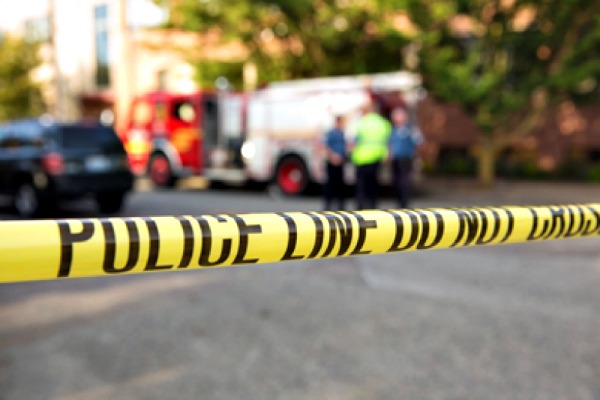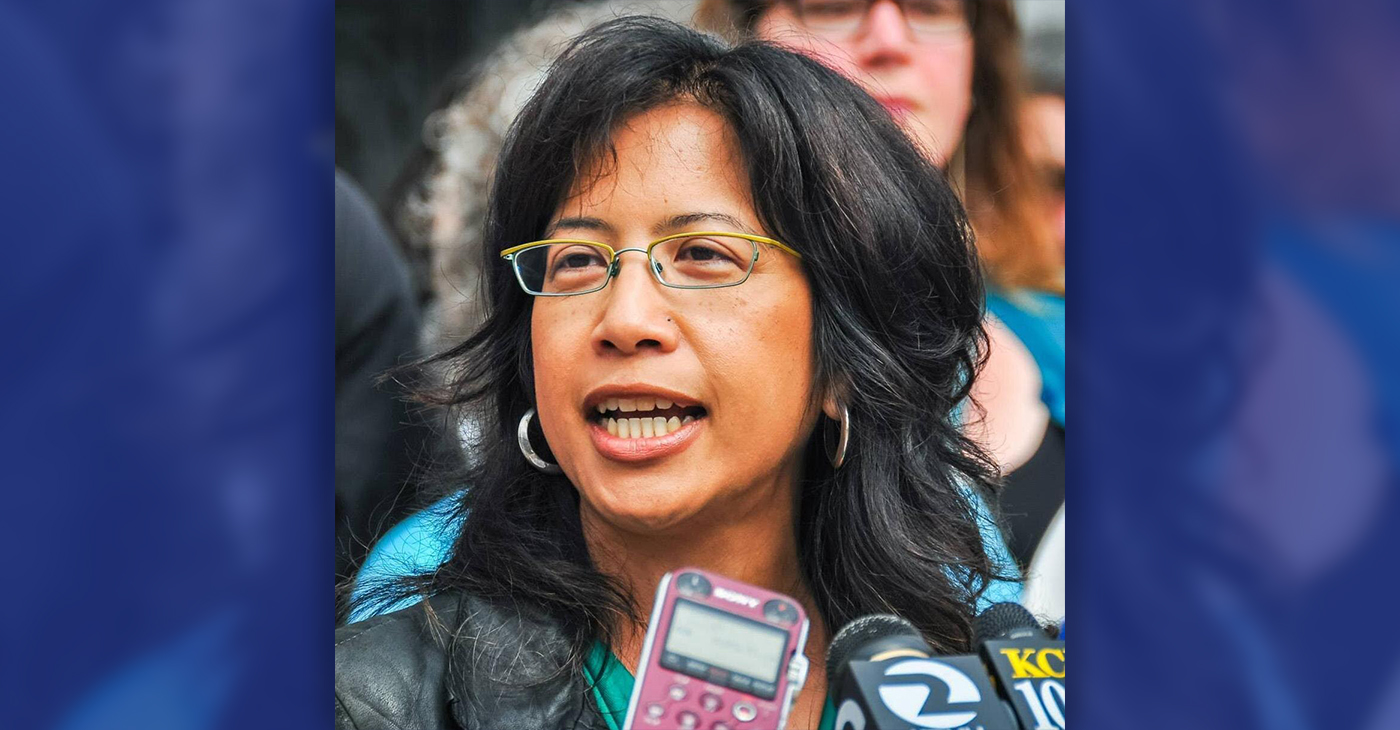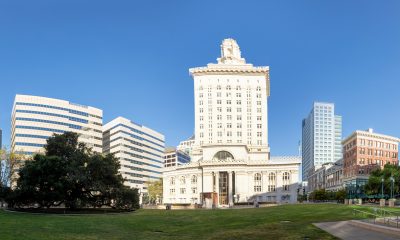Crime
Oakland, Violence and PTSD

Mental health is almost never brought up as a subject of conversation in Black America – certainly not in urban communities like Oakland where shootings and bursts of domestic violence are often leading stories on the evening news.
In a city like Oakland – where 35 percent of non-affluent young adults are unemployed –children grow up in a world constantly rocked by crime and violence that shapes their expectations for themselves and they people they love.
Oakland has become a modern day warzone. According to the 2013 Year End Crime Report from the City of Oakland, the city averages 107 homicides a year. The city’s ShotSpotter technology, which captures the sound of gunshots within the city, recorded 16,000 rounds of gunfire last year.
It’s a sad truth, but by the time many Oakland youth have entered high school, they have experienced the sudden death of a friend or loved one.
Yet discussing the impact of these long-term wounds is taboo, more than likely swept under the rug where they are left to fester. The unwillingness to initiate a frank discussion of mental health issues contributes to the problem.
According to the National Center for Victims of Crime “The trauma of victimization is a direct reaction to the aftermath of crime” and that “crime victims suffer a tremendous amount of physical and psychological trauma, often referred to as Post Traumatic Stress Disorder (PTSD).
This is a sobering insight that becomes more starkly real in the context of one young man’s
life.
Rickey Hollins, 18 years old in 2006, was standing on a corner talking to a group of friends when a car pulled up. Three shooters got out with AK47s and opened fire on the group.
His sister was shot in the pelvis, and another friend was hit in the shoulder and back. Hollins received a shoulder wound. His friend Jay Black died on the scene.
Hollins’ best friend, Willie Clay, III, was laying on the ground unresponsive. He was transported to a hospital but died from one gunshot wound to the head.
“I feel guilty because we should have left the scene before anything happened,” said Hollins. “We had a plan to leave but we stayed.”
Hollins remembers cleaning his friend’s blood and brains off the concrete. He says some of Clay’s dreadlocks had come off his head when he was shot. He cleaned them and gave them to Clay’s mother.
One health professional who has to deal with the aftermath of these bursts of horrific violence is Dr. Swapnil Shah, director of the Orthopedic Trauma Center of Alameda Health Systems.
Working at Highland Hospital, the center assists patients with numerous muscular and skeletal problems. Nearly 50 percent of those daily patients are victims of violence.
The center’s patients have physical injuries that are noticeable and in most instances easily treatable, but the psychological issues are lasting and go untreated, according to Dr. Shah.
“If they’ve lost a loved one, they will become very distrustful and easily develop a hypersensitivity to pain,” he said. “They hold onto that physical pain as a marker to their emotional pain.
“[PTSD] is an under-diagnosed condition in our clinic and undertreated condition in our population,” he said.
In Oakland, as in other urban communities, “It’s like a badge of honor to say I’ve been shot, but nobody is willing to say how scared they were when they got shot,…or how they feel going into the world after being shot,” Shah added.
“They are so terrified.”
Hollins is one victim who is unafraid to admit that he was scared or that the incident left him physically and emotionally sick. He said he was angry frustrated, and had to smoke a lot of weed to get through.
That instant of violence has permanently changed his perspective on life. He no longer likes Fourth of July because he can’t deal with the loud noises, and being out late makes him feel uncomfortable.
Though he went to a doctor for his physical wound, he was never offered a counselor or provided any resources to talk to a psychologist. Rather, he admits – just as Dr. Shah stated – that the bullet lodged in his bicep became a marker for his emotional pain.
Before the bullet was finally removed in 2012, he says he couldn’t work, because he couldn’t move his arm, and when he did it reminded him of the day he lost his best friend.
“It probably was a mental thing,” he said. “[But] I was never offered help, I counseled myself .”
And that’s the story that affects the lives of so many youth living in Oakland’s minority communities – the place most dominantly affected by the violence.
In order for that to change, Dr. Shah suggests that the basic approach of health systems has to be one that works with people to help them change their approach to life.
“The whole point is to not only save people lives but to save people’s lifestyles,” he said. “That shift in mentality has to come at this fundamental level.”
This story was reported with support from a grant from the nonprofit(s) Entertainment Industries Council.
Activism
Oakland Post: Week of December 25 – 31, 2024
The printed Weekly Edition of the Oakland Post: Week of December 25 – 31, 2024

To enlarge your view of this issue, use the slider, magnifying glass icon or full page icon in the lower right corner of the browser window. ![]()
Bay Area
Man Found Guilty After Shooting Gun into Parked Car with Sleeping Passengers
Carmen Watts fired his gun into a parked car, where two unarmed men were sleeping, several times. One victim suffered multiple wounds, while the other was uninjured. He now faces 23 years in state prison. His sentencing is scheduled for Monday, Feb. 3, 2025 in Department 10 at the René C. Davidson Courthouse in Oakland.

By Post Staff
A jury has returned a guilty verdict against Camren Watts on two counts of assault with a semiautomatic firearm for an unprovoked shooting near the intersection of 51st Street and West Street in Oakland back in September of 2020.
Watts fired his gun into a parked car, where two unarmed men were sleeping, several times. One victim suffered multiple wounds, while the other was uninjured. He now faces 23 years in state prison. His sentencing is scheduled for Monday, Feb. 3, 2025 in Department 10 at the René C. Davidson Courthouse in Oakland.
“I first want to thank the jury for their service and careful deliberation in this trial,” said Chief Assistant District Attorney Royl Roberts. “I also want to congratulate the Prosecution Team for their hard work securing this conviction and recognize the Inspector on this assignment for their support throughout the case and jury trial. This guilty verdict reaffirms that anyone who uses a gun to harm people in our community will be held to account for their actions in a court of law.”
Bay Area
New Interim Mayor Nikki Bas Takes Office, Announces Balanced Budget
“The Council made difficult but clear decisions last night,” Mayor Bas said in a statement released Thursday. “With yesterday’s budget adoption, the City of Oakland is on track to maintain our immediate fiscal health and our emergency reserves are at the required level.”

‘The Council made difficult but clear decisions,’ said Bas
Kaplan proposed for Interim District 2 Council seat
By Post Staff
Oakland City Council President Nikki Fortunato Bas was sworn in interim mayor on Wednesday and immediately sat down with City Council members to rebalance the city’s budget, closing a projected deficit and maintaining emergency financial reserves.
“The Council made difficult but clear decisions last night,” Mayor Bas said in a statement released Thursday. “With yesterday’s budget adoption, the City of Oakland is on track to maintain our immediate fiscal health and our emergency reserves are at the required level.”
“The City now seeks to move forward in strong collaboration with its Labor partners and the community-led Budget Advisory Commission toward long-term fiscal sustainability,” she said. “We all deserve to feel safe and secure, whether we’re taking our kids out to play, running our essential small businesses, parking our car on the street, or walking home at night.”
Bas took over as mayor from Sheng Thao, whose last day in office was Tuesday after losing a recall election in November.
“Thank you for choosing me to serve as your mayor. As the first Hmong American woman to become the mayor of a major American city, it has been the honor of my lifetime. I am deeply proud of the progress we created together,” Thao said.
Bas, in her final remarks as a councilmember, proposed that the City Council appoint Kaplan to replace her until the April election.
“As you know Councilmember Kaplan is retiring, she is willing to serve in this interim capacity. She is a resident of District 2 in Jack London, will not run for the seat in the special election; and I believe that she is uniquely qualified to jump in and immediately help to serve our District 2 residents, as well as key projects moving forward, and of course help lead the city’s biennial budget process,” Bas said.
At its meeting this week, the Council affirmed the City Administrator’s budget balancing actions, utilizing unrestricted and transferred funds to help fill the gap and provided direction and strategies to close the remaining need.
The proposals include finding new revenue from increased events and success at the Oakland Coliseum/Arena and other sources, making any further cuts a last resort.
They also proposed to immediately collect unpaid business taxes by doing an internal audit and strengthen controls on OPD overtime overspending.
Said Councilmember Kaplan, “It is vital to protect core public services, and the long-term fiscal solvency of our city. I am honored that the extra available funds I had previously identified have been confirmed, and are being incorporated into budget strategies, allowing Oakland to reduce cuts and restore reserves. In addition, important public serving and revenue-generating functions are being strengthened, including to reduce blight and provide safer, cleaner streets.”
Councilmember Kevin Jenkins (District 6) said, “The Fire Department, which had been preserved from cuts in July, was able to rapidly stop the Keller Fire from growing out of control, which prevented a repeat of the horrific loss of life and loss of homes that took place during the 1991 Oakland Hills Fire.”
According to a Mayor’s Office press statement, Oakland’s investments in the Oakland Police Department and the Department of Violence Prevention have yielded the fastest and most dramatic reduction in homicides in the city’s history.
The City’s deep investments in public safety over the past year continue to pay off, with homicides down 35% year-to-date and overall crime down by 34% since last year. The Public Safety Leadership team is very strong with OPD Chief Floyd Mitchell, DVP Chief Dr. Holly Joshi, OFD Chief Damon Covington, and their deputy chiefs having over a century of collective experience in Oakland.
The budget proposals preserve Oakland’s Ceasefire violence intervention strategy, prioritize OPD patrol and investigations, and continue services to improve 911 response times, with currently 71% of calls answered within 15 seconds or less — a dramatic improvement over the prior year, the press statement said.
Oakland’s investments in sidewalk repair, street paving, clearing abandoned autos, and safer conditions on our roadways are improving both safety and quality of life. The proposals restore funding for important and needed bicycle and pedestrian safety projects, street paving, and parking enforcement, the statement said.
The Council is considering a sales tax ballot measure for the April 15 special election. The proposed half-cent sales tax increase would raise approximately $29 million annually. Ongoing revenue generation and improved efficiencies would help address the City’s structural deficit in the next two-year budget.
-

 Activism4 weeks ago
Activism4 weeks agoOakland Post: Week of November 27 – December 3, 2024
-

 Activism2 weeks ago
Activism2 weeks agoButler, Lee Celebrate Passage of Bill to Honor Congresswoman Shirley Chisholm with Congressional Gold Medal
-

 Activism2 weeks ago
Activism2 weeks agoPost News Group to Host Second Town Hall on Racism, Hate Crimes
-

 Activism2 weeks ago
Activism2 weeks agoDelta Sigma Theta Alumnae Chapters Host World AIDS Day Event
-

 Business2 weeks ago
Business2 weeks agoLandlords Are Using AI to Raise Rents — And California Cities Are Leading the Pushback
-

 Activism3 weeks ago
Activism3 weeks agoOakland Post: Week of December 4 – 10, 2024
-

 Activism2 weeks ago
Activism2 weeks agoOakland Post: Week of December 11 – 17, 2024
-

 Arts and Culture1 week ago
Arts and Culture1 week agoPromise Marks Performs Songs of Etta James in One-Woman Show, “A Sunday Kind of Love” at the Black Repertory Theater in Berkeley


























































